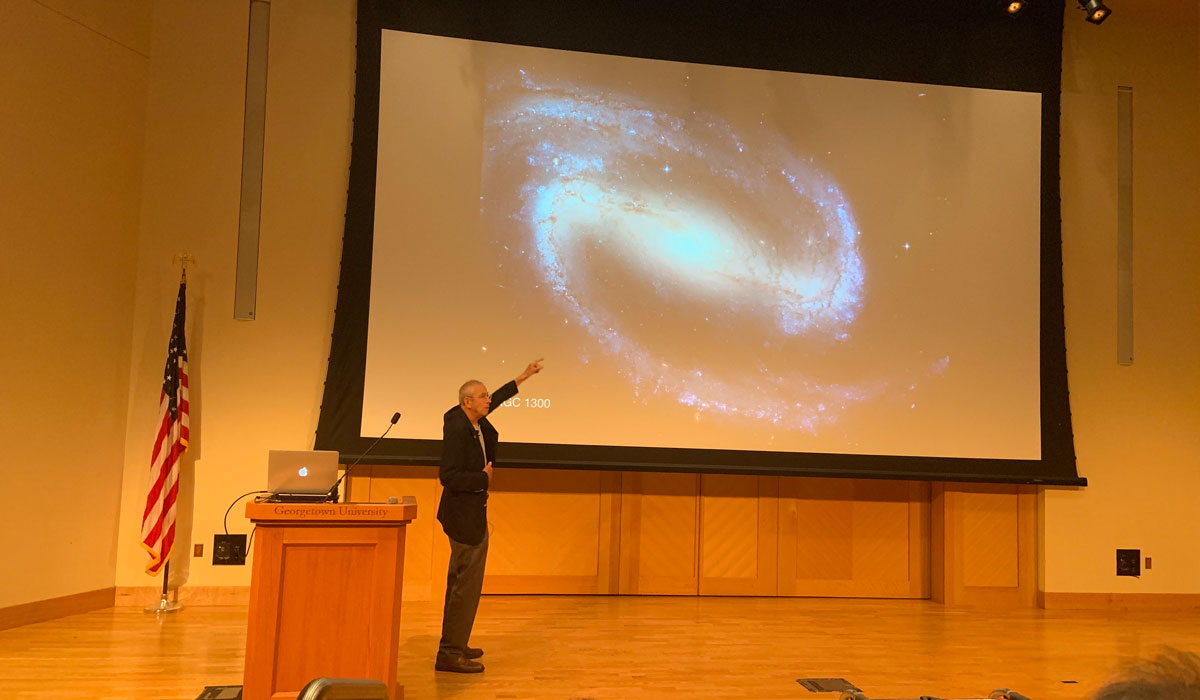

James Peebles speaking at Georgetown University
Earlier this month, Duilia de Mello and her husband Tommy Wiklind were trying to guess who might be named the 2019 Nobel Prize Winners in Physics. The two physics professors considered many colleagues, but were surprised when the winners were announced. Of the three winners — James Peebles, Michel Mayor, and Didier Queloz — de Mello knew two of them.
“I learned in grad school reading Peebles’ books,” said de Mello, vice provost for global strategies. “His input in physics is immeasurable.”
This summer, de Mello saw Peebles at a lecture at Georgetown University honoring the late physicist Vera Rubin. There, she shared meals with Peebles and also spent time with John Mather Nobel laureate of 2006. “I’m so mad I didn’t get a selfie! I was with two Nobel prize winners!”
Peebles paved the way for current physics discoveries, de Mello says. “He put together models of the evolution of the universe.” When studying those models, “there was missing matter; what we call today ‘dark matter’ and ‘dark energy.’ His theory and work made predictions that allow us to go hunting for what he was predicting.”
De Mello reached out to Peebles to congratulate him on receiving this honor, and invited him to visit the Catholic University campus (he said yes!).
Mayor is the other prize-winner de Mello has crossed paths with. They were using the same observatory in Chile; the observatory where he made major discoveries regarding exoplanets — planets orbiting stars outside our solar system.
In addition to affecting the study of astronomy, de Mello says this discovery has “put our lives in perspective. The entire field of astronomy changed after this discovery. By discovering planets around other stars, we understand more about ourselves and the Earth, our planet.”